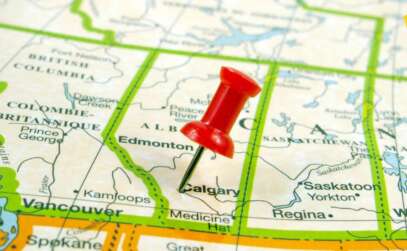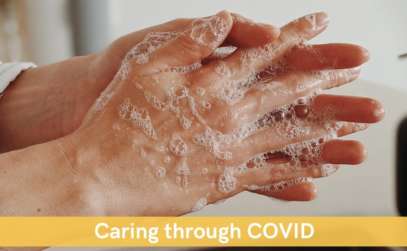“Where did I put my keys?”: our naturally imperfect memory
We’ve all experienced them, those lapses in memory that irritate and niggle:
- “Where did I put my keys?”
- “What IS that actor’s name?”
- “What did I come into this room for?”
The problem as we age is that there is also that nagging question in our minds, is this normal or is my memory getting worse?
The answer, according to two fascinating TED talks and accompanying article by neuroscientist and novelist Lisa Genova, is that it’s normal. As she describes in a TED talk:
“Memory is far from perfect. Our brains are not designed to remember people’s names, to do something later or to catalogue everything we encounter. These imperfections are simply the factory settings.”
Where are my keys?
Our memory does not accurately record every second of every day and store it forever. We remember what we pay attention to. So, if you pay attention to where you put your keys when you walk in the door, you will remember where they are.
However, if you put your keys down in a hurry because your phone’s ringing as you arrive home with an armful of groceries and the dog’s going crazy, chances are your keys won’t be in the “usual place”. (Neither will the groceries, but they’re easier to spot!)
Often you will find your keys not through a random search but by “retracing your steps” and recalling the sequence of events that led up to the loss of your keys, either mentally and/or physically.
“What did I come in here for?”
The same applies if you can’t remember what you came into a room for. Let’s take an example. You see a pile of dirty laundry in the bedroom, but no basket. You need the basket to carry the laundry down to the laundry room. So you go downstairs to fetch it.
However, your brain only holds the “I need to fetch the laundry basket” thought for a few seconds. By the time you’ve got into the laundry room from upstairs, your brain has been distracted by other things en route: the dog wagging its tail for a pat, the arrival of the mailman, the rattle of the loose floor tile in the kitchen that you’ve been meaning to fix. No wonder you forget about the laundry basket by the time you’re standing next to the washing machine!
“You know, what’s his name”
Forgetting the name of a character in a TV show you’ve watched for several series can be so annoying. It’s on the ‘tip of your tongue’, but you just just can’t get it. You mentally flounder around trying to remember, gathering clues (“He’s short, dark haired, married to that blond girl with the annoying voice.”) You often mentally grab at what you consider part of the name – “It’s something like Greg”.
Big mistake. This loosely connected word is known as the “ugly sister” of the target word you’re looking for. Your brain latches on to the incorrect ugly sister and starts using its neural connections to find information on every Greg you remember. Before you know it, you’re down a memory cul-de-sac of Greg-related information that’s not helping one bit.
Dealing with ugly sisters
Dealing with ugly sisters is where the generations differ in attitude. Young people in their twenties will forget actors’ names just as much as a retired person. The difference is they don’t stress about it. They just “outsource” the problem to their smart phone, Google the name, and “solve” the mystery.
According to Ms Genova, there is no advantage to your brain and memory function to keep chasing down ugly sister information. Looking it up is fine.
“Looking up the name of the actor … doesn’t weaken my memory’s ability whatsoever. Likewise, suffering through the mental pain and insisting on coming up with his name on my own doesn’t make my memory stronger or come with any trophies for doing so. You don’t have to be a memory martyr.“
The same applies to making lists of tasks to do or things to buy in the supermarket. You simply don’t need to hold all that information in your head. A list is more efficient, so use it.
Need less to say, if you move on to do something else, a couple of hours later the answer may well spring into your mind – the character’s name is Howard! (2). That’s because you’ve left your brain to resolve the connections on its own.
Alzheimers and memory impairment
When we see our loved ones and other seniors age, we may become super-sensitive to memory lapses, fuelled by concerns about mental health, dementia Alzheimers and general cognitive decline.
As the above examples show, our imperfect memory has always been there. The signs to look for in terms of dementia or Alzheimers are when memory lapses take unexpected turns.
- You may lose your keys, you may even find them in the fridge, but you know they are your car keys.
- A person with symptoms of Alzheimers may stare at their keys and know they are important, but not know what they are actually for.
Crossword puzzles and building new brain connections
Ms Genova has an interesting take on a favourite cognitive stimulation activity; crosswords and its role in learning new things, important for the creation o new neural pathways in the brain.
“Learning new things .. doesn’t mean doing crossword puzzles — you don’t want to simply retrieve information you’ve already learned. That’s like traveling down old, familiar streets, cruising neighborhoods you already know. You want to pave new neural roads.”
New neural roads with Vytality at Home
Our home care service isn’t just about the “necessaries” of personal care and housekeeping tasks. Our caregivers also provide cognitive stimulation in a variety of ways, from conversation to outings. As Ms Genova suggests, it’s about paving new neural roads, learning new things. That doesn’t need to be a major project such as learning to play the piano either. A “new thing” can be the latest information on a caregiver’s family or a discussion about a hot topic in the news. The important principle is that engagement and cognitive stimulation stimulate the brain to make fresh and resilient connections between the known and the new.
If you are interested in regular home care visits for yourself or a loved one:




